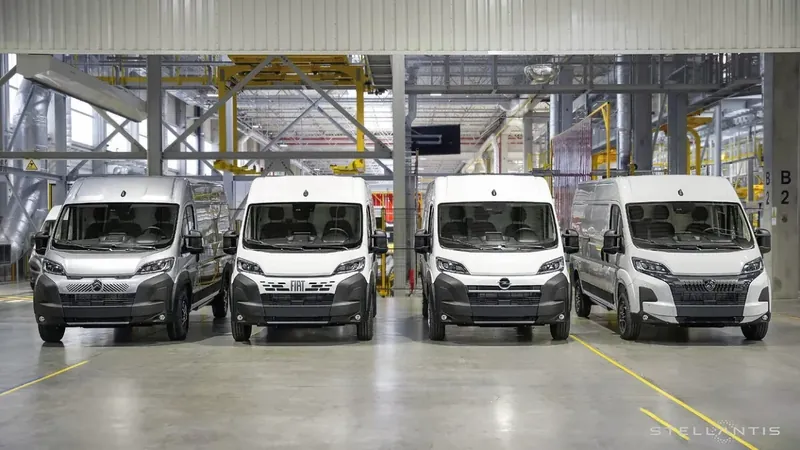
Stellantis Pulls the Plug on Hydrogen Fuel Cell Development: What It Means for the Future
2025-07-16
Author: Wai
In a move that echoes the famed quote from *Mean Girls*, it seems the hydrogen dream is on the back burner: "stop trying to make hydrogen happen." After years of debate surrounding the merits of hydrogen as a clean fuel alternative, marked by the rise of battery electric vehicles, automaker Stellantis has announced it's halting development on its hydrogen fuel cell electric vehicles (FCEVs), which were slated for production this year.
Hydrogen has often been touted as a Holy Grail of clean energy, especially appealing due to its potential to power vehicles that emit only water. Supporters claimed it could deliver the convenience of traditional gasoline refueling paired with a greener footprint. However, the reality is much more complex. Filling a hydrogen tank can take up to seven minutes, and when trying out cryogenic options, keeping fuel at -253°C raises serious practicality issues.
Moreover, hydrogen’s energy density is notably lower compared to gasoline or diesel, and producing hydrogen—even from renewable sources—is an inefficient process. The bulk of hydrogen available comes from less sustainable methods like steam reforming, further undercutting its green credentials. Added to this, refueling infrastructure is virtually non-existent, making hydrogen fuel an impractical choice for most.
Stellantis's decision isn’t merely about technology; it’s a strategic pivot. The automaker cited the prohibitive costs of developing FCEVs and their dependence on substantial incentives to sell as key factors in their withdrawal. In a statement, Jean-Philippe Imparato, Stellantis's Chief Operating Officer for Enlarged Europe, emphasized the need to focus on electric and hybrid vehicles to meet rigorous CO2 regulations and consumer expectations.
Fortunately for its workforce, Stellantis assures that no jobs will be lost as a result of this strategic shift. Research and development teams will be redirected to other projects, reaffirming the company's commitment to innovate within more viable segments of the automotive industry.
As the hydrogen dream fades, can electric vehicles truly suffice in combating climate change, or will the industry continue to explore alternative fuels? Only time will tell, but for now, it seems that Stellantis is firmly positioning itself in the burgeoning electric vehicle market.



 Brasil (PT)
Brasil (PT)
 Canada (EN)
Canada (EN)
 Chile (ES)
Chile (ES)
 Česko (CS)
Česko (CS)
 대한민국 (KO)
대한민국 (KO)
 España (ES)
España (ES)
 France (FR)
France (FR)
 Hong Kong (EN)
Hong Kong (EN)
 Italia (IT)
Italia (IT)
 日本 (JA)
日本 (JA)
 Magyarország (HU)
Magyarország (HU)
 Norge (NO)
Norge (NO)
 Polska (PL)
Polska (PL)
 Schweiz (DE)
Schweiz (DE)
 Singapore (EN)
Singapore (EN)
 Sverige (SV)
Sverige (SV)
 Suomi (FI)
Suomi (FI)
 Türkiye (TR)
Türkiye (TR)
 الإمارات العربية المتحدة (AR)
الإمارات العربية المتحدة (AR)